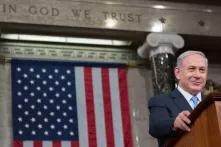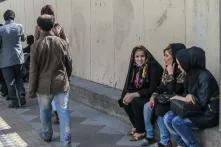Playing with fire: are the US and Iran risking war?
Iran and the US are in an escalation spiral. In this dossier, our Heads of offices of the Heinrich Böll Foundation report on the hot spots of the conflict.
ABOUT THE DOSSIER
What resources are available to European foreign policy to prevent an uncontrollable chain reaction? What could the EU put on the table that might salvage the nuclear treaty? What is Israel’s view of the conflict? Who would benefit from an escalation, regionally and internationally? Is it really in Trump’s interests? How have developments been perceived in Tehran? This dossier contains detailed backgrounds to this conflict, the atomic treaty and the reactions of all concerned.
BACKGROUND
In a targeted missile strike on 3 January 2020, the US killed the Iranian major General Qasem Soleimani, Commander of the Quds Force and the most important strategist behind Iran’s military engagement in the region. The Iranian government and Revolutionary Guards promised punitive retaliatory measures. Previously, Iran had gone no further than largely symbolic attacks on US bases in Iraq and its official announcements concerning the nuclear deal showed a sense of proportion.
The prospect of war has been real since late June 2019, when Iran shot down a US drone. In response to the incident, the USA appeared to be gearing up for a direct military strike against Iran. However, a direct military confrontation of this kind would affect not just the Islamic Republic, but would cause the many already bitter conflicts throughout the region to spread and become drastically more severe – with unpredictable humanitarian and political consequences.
In May 2018, Donald Trump unilaterally terminated the nuclear treaty. Since then, the threats and military actions have intensified on both sides. The US has hit Iran with an extensive and extremely effective sanctions regime. The objective is to push Iran to enter into new negotiations on a more extensive treaty than the one dating from 2015. For its part, Iran feels that it was misled over the benefit of the treaty and has stepped further and further back from the deal every two months since May 2019. In response to this, the Europeans initiated a dispute settlement mechanism at the end of 2019. The consequences of the sanctions on the Iranian economy have been devastating – medicines and food are now in short supply. This has led to growing protests against the Iranian government, which in turn is reacting to the pressure with threats against the US and its allies and the harsh repression of its own people.








